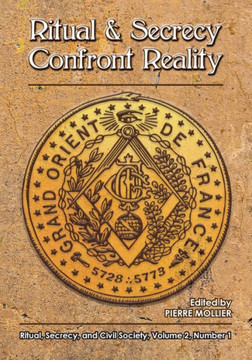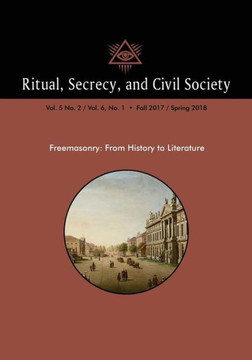
Westphalia Press
Ritual, Secrecy, and Civil Society : Vol. 11, No. 1, Spring 2024
Product Code:
9781637237359
ISBN13:
9781637237359
Condition:
New
$14.75

Ritual, Secrecy, and Civil Society : Vol. 11, No. 1, Spring 2024
$14.75
The pairing of slavery and Freemasonry may be surprising. It actually forms an antinomy a priori, which may seem to make a study on this theme im-possible, except perhaps from the angle of the involvement of Masonic circles in the fight for the abolition of slavery, proclaimed in 1834 in the English colonies, in the French colonies in 1848, in the United States in 1861, then in Cuba and Brazil later, between 1880 and 1888. However, aiming to analyze without prejudice the relations between the Freemasons of the great slave powers on the one hand, the practice of trafficking and slavery by these powers on the other hand, is of real interest. Born in the 18th century, at the very moment when the Atlantic slave trade was experiencing a remarkable boom which would make it the "dark side of the Age of Enlightenment" (Y. Benot), strongly open to the world of shipowners and naval officers, quite established in the ports starting with the quartet of trading ports, Freemasonry was never in fact-although it refers to the notion of Fraternity- a form of sociability whose members were unanimously abolitionist and as inherently impervious to participation in or support for slavery. In fact, it took an evolutionary process, sometimes slow, linked to the Revolution of 1789 in France, to the progress of political liberalism to which most Freemasons in Spanish-speaking and Portuguese-speaking countries adhered in the19th century, for European Masonic societies, as a whole, take a position against slavery, more in line with the representations we have of Freemasonry. Table of Contents Foreword Eric Saunier An Approach Concerning the Relationship between SpanishFreemasonry and the Abolition of Slavery Yván Pozuelo Andrés Portuguese Freemasonry between Slavery and Antislavery: Transoceanic Masonic Networks in the Portuguese Empire Fernando Marques da Costa Prince Hall Freemasonry Reconsidered: Mistakes Historians Make Paul Rich Toward an Understanding of Mexican Freemasonry: A Panoramic and Theoretical Approach Guillermo De Los Reyes Heredia, PhD Enlightenment Sociability: Strengths and Weaknesses Cécile Revauger Le secret des francs-maçons(1744)
| Author: Pierre Mollier |
| Publisher: Westphalia Press |
| Publication Date: Mar 30, 2024 |
| Number of Pages: NA pages |
| Language: English |
| Binding: Paperback |
| ISBN-10: 1637237359 |
| ISBN-13: 9781637237359 |





